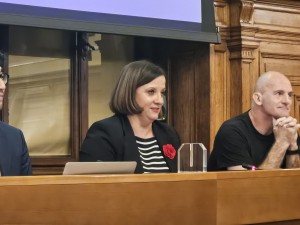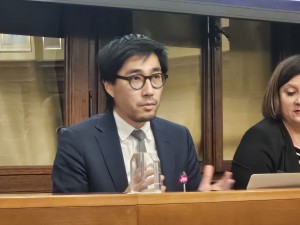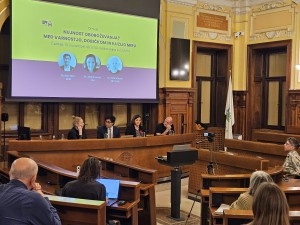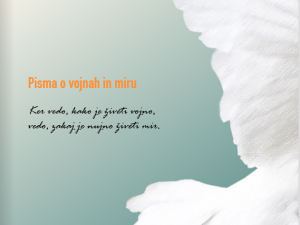Living Peace 19: Letters of Wars and Peace
29. 5. 2025 | Politics
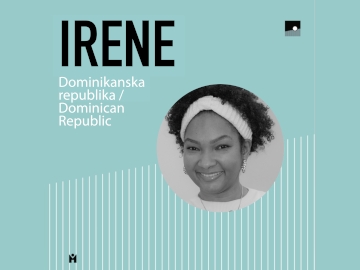
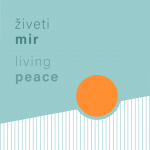 At the end of 2022, we at the Peace Institute, started organizing a series of public events entitled Thinking Peace as a response to the multitude of armed conflicts around the world. Since the world has been spiralling into dangerous global militarization, we wanted to rethink what is war, what is peace, and more importantly how to ensure a stable peace which would not be quickly engulfed in new conflicts and wars.
At the end of 2022, we at the Peace Institute, started organizing a series of public events entitled Thinking Peace as a response to the multitude of armed conflicts around the world. Since the world has been spiralling into dangerous global militarization, we wanted to rethink what is war, what is peace, and more importantly how to ensure a stable peace which would not be quickly engulfed in new conflicts and wars.
We want to expand on the Thinking Peace cycle and add new dimensions to imagining peace. With the help of amazing individuals worldwide, we are beginning a new series of public letters written by people whose lives were interrupted by war or who found themselves in a recent armed conflict. We have titled this series of letters as Living Peace to emphasize how important peace is and that people often only realize this importance when facing the brutality of war. We want to illustrate how people from Palestine, Ukraine, Rwanda, Bosnia and Herzegovina, Croatia, Serbia, Syria, Sudan, Afghanistan, Congo, Yemen and elsewhere think publicly about peace. How do the inhabitants of these regions face wars and military conflicts? What lessons can we learn from their intimate experiences and existential fears?
While opinions of world leaders who justify or even defend wars, dominate today’s media spheres, we want to amplify the voices that defend peace, reject violence and recognize equal rights for all. Having experienced war, they understand why it is essential to live in peace.
The 19th letter we are publishing was written by Irene from Dominican Republic:
Because, as I said in the first few lines, every country carries its own struggles. Every day we live with constant and ever-changing situations that affect all of us—not just our nations, but all human beings. We’re letting ourselves be ruled by anger and fear, which gives our leaders the green light to act in the name of the “people’s call” or “fighting for the people’s rights.”
But at what cost?
Death? Hunger? Repression? The little or non-existent freedom of expression, and in many cases, the violation of human rights?
***
If we lived in a world with more love and understanding, we would see life from a different perspective and with new eyes. Love is the key for everything to flow with harmony and peace. Let’s learn to give more love, to be more loving, and to be more open to the idea that love is not just a word that defines what two people may feel for each other—but rather a feeling that motivates us to be better human beings and to see more good in others.
Love equals peace.
LETTER BY IRENE FROM DOMINICAN REPUBLIK
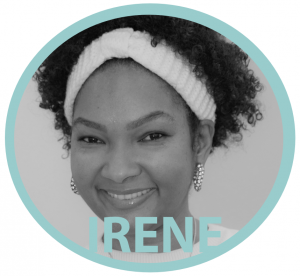 Hello,
Hello,
my name is Irene Marte.
I am Dominican. You may think that we are not in a war situation and that we are not being negatively affected by such a situation, but I am a firm believer that every country carries its own struggles and that we live with the consequences of our governments—whether for better or for worse.
In 1822, the Dominican Republic lived 22 years under the military rule of Haiti, a very difficult time for Dominican citizens, as that regime tried to eliminate the Spanish language, the traditional customs of the country. It was a very complicated time because there are major differences between Haiti and the Dominican Republic in terms of culture, race, customs, and language.
In 1844, a battle was fought in collaboration with other countries to free the country from that military regime. This event allowed us to proclaim the Dominican Republic as free and independent from that country. But that doesn’t mean we haven’t suffered new hardships on both sides since then.
In 1930, we were governed by General Rafael Leonidas Trujillo, who established a total dictatorship in the country. His government was marked by political repression, anti-communism, a cult of personality, and total manipulation and control of the state’s institutions. His dictatorship was a violation of human rights, as he exercised complete control over Dominican society.
His 31 years of rule are known as “The Trujillo Era” and are considered one of the bloodiest tyrannies in Latin America. During his time in power, there were more than 50,000 murders, including one of the bloodiest massacres in history known as the “Parsley Massacre,” which involved the killing of more than 15,000 Haitians near what is known as the Massacre River, which divides the two republics.
And you may ask… Why are you telling us history? Why are you telling us all this?
Because, as I said in the first few lines, every country carries its own struggles. Every day we live with constant and ever-changing situations that affect all of us—not just our nations, but all human beings. We’re letting ourselves be ruled by anger and fear, which gives our leaders the green light to act in the name of the “people’s call” or “fighting for the people’s rights.”
But at what cost?
Death? Hunger? Repression? The little or non-existent freedom of expression, and in many cases, the violation of human rights?
We live in a world governed by people thirsty for power, blinded by the desire for more and more, regardless of the consequences or what they must do to get what they want. But we are also responsible for allowing many of them to reach certain levels of power, because we are the ones who choose our leaders and place them in their positions. If people can unite in love, harmony, and for a common good, they should be just as capable of taking that power away.
We are at a moment in time when humanity faces unprecedented challenges. I want to raise my voice along with all those who seek peace, understanding, and harmony.
It is time to leave behind conflicts, inequalities, divisions, and work together to build a better and fuller future for everyone.
Peace is not just the absence of conflict; it is a state of being based on respect, empathy, understanding, and humility of heart.
It’s time to recognize our shared humanity and work together to address the challenges we face.
As some great teachers once said:
- Nelson Mandela – Peace is not just a dream; it is a reality we can build together.
- Dalai Lama – Compassion is the key to peace.
- Mahatma Gandhi – The world needs more love, more compassion, and more peace.
If we lived in a world with more love and understanding, we would see life from a different perspective and with new eyes. Love is the key for everything to flow with harmony and peace. Let’s learn to give more love, to be more loving, and to be more open to the idea that love is not just a word that defines what two people may feel for each other—but rather a feeling that motivates us to be better human beings and to see more good in others.
Love equals peace.
I hope this inspires and motivates others to work together to build a more peaceful and harmonious future.

